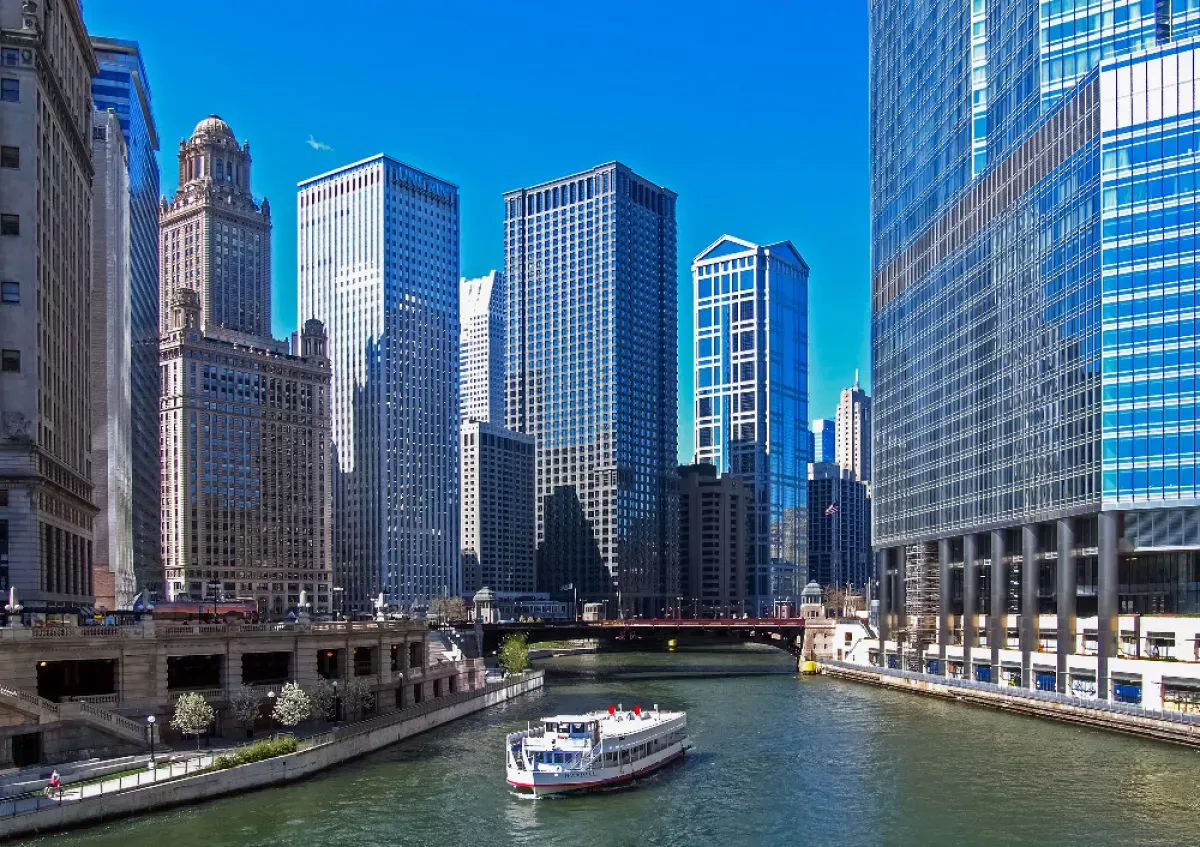Chicago is the most populous city in Illinois and the Midwest, and the third-most populous in the United States with a population of 2.74 million (2020). Its metropolitan area, with 9.41 million residents, is the third-largest in the country. Chicago is located on the western shore of Lake Michigan and is the seat of Cook County, the second-most populous county in the U.S.
1900: End of the period after the Great Chicago Fire
Around 1900 marked the end of a short period in the history of Chicago that had a lasting influence on American literature, from the time of the Great Chicago Fire.
1900: Chicago's Population in 1900
In 1900, more than 77% of Chicago's population were either foreign-born or born in the United States of foreign parentage.
1900: Reversal of the Chicago River in 1900
In 1900, the city of Chicago completed a major engineering feat that reversed the flow of the Chicago River away from Lake Michigan. This project connected to the Illinois River, which flows into the Mississippi River.
1901: White Sox Play on the South Side & Win Pennant
In 1901, The White Sox started playing on the South Side and won their first American League pennant.
1901: Joliet Junior College establishment
In 1901, William Rainey Harper was instrumental in establishing Joliet Junior College as the first junior college in the nation.
1905: Benjamin Ferguson Establishes Trust
In 1905, Benjamin Ferguson established a trust to fund outdoor public art in Chicago.
1906: Cubs vs White Sox World Series
In 1906, The Chicago Cubs and Chicago White Sox faced each other in a World Series.
1907: Bugmobile Founded
In 1907, Chicago was part of the automobile revolution, hosting the Brass Era car builder Bugmobile, which was founded there.
1908: Cubs' Championship Drought Begins
In 1908, the Cubs began the longest championship drought in American professional sports, failing to win a World Series between 1908 and 2016.
1910: Black Population Doubling
Between 1910 and 1920, Chicago's black population doubled as part of the Great Migration.
1910: The Great Migration Between 1910 and 1930
Between 1910 and 1930, the African American population of Chicago increased dramatically due to the availability of jobs.
1910: Railroad Passenger Service in 1910
By 1910, over 20 railroads operated passenger service out of six different downtown terminals in Chicago.
1912: Poetry Magazine Founded
In 1912, Poetry magazine was founded by Harriet Monroe, who was working as an art critic for the Chicago Tribune. The magazine discovered such poets as Gwendolyn Brooks, James Merrill, and John Ashbery.
1919: Chicago Race Riot of 1919
In 1919, Chicago experienced continuing racial tensions and violence, including the Chicago race riot.
1919: Ratification of the 18th Amendment in 1919
In 1919, the ratification of the 18th amendment ushered in the beginning of the gangster era.
1920: Black Population Doubling Again
Between 1920 and 1930, Chicago's black population doubled again, continuing the trend of the Great Migration.
1920: Annexation of Neighboring Townships in 1920
By 1920, the city grew significantly in size and population by incorporating many neighboring townships between 1851 and 1920.
1920: Tenant Rent Strikes in 1920
From 1920 to 1921, the city was affected by a series of tenant rent strikes.
1921: Tenant Rent Strikes in 1921
From 1920 to 1921, the city was affected by a series of tenant rent strikes.
1924: Formation of the Society for Human Rights in 1924
In 1924, Chicago was the first American city to have a homosexual-rights organization, called the Society for Human Rights.
1926: Blackhawks Began Play
In 1926, the Chicago Blackhawks of the National Hockey League (NHL) began play, becoming one of the "Original Six" teams of the NHL.
1927: Republican Mayor Elected
Since 1927, the citizens of Chicago have not elected a Republican mayor. In 1927, William Thompson was voted into office.
1928: Chicago Tax Revolt from 1928 to 1933
From 1928 to 1933, the city of Chicago witnessed a tax revolt.
1929: St. Valentine's Day Massacre in 1929
In 1929, Chicago was the location of the infamous St. Valentine's Day Massacre, where Al Capone sent men to gun down members of a rival gang.
1930: The Great Migration Between 1910 and 1930
Between 1910 and 1930, the African American population of Chicago increased dramatically, from 44,103 to 233,903 due to the availability of jobs.
1930: Segregation in Chicago
By 1930, two-thirds of Chicago's black population lived in sections of the city that were 90% black. At the same time, the block of 4600 Winthrop Avenue was the only block African Americans could live or open establishments in on the North Side.
1930: Black Population Growth
In 1930, two-thirds of Chicago's black population lived in sections of the city which were 90% black in racial composition.
1931: End of the Republican Political Machine in 1931
The Republican political machine in Chicago was utterly destroyed by the economic crisis, and every mayor since 1931 has been a Democrat.
1933: Industrial Job Losses in 1933
By 1933, over 50% of industrial jobs in Chicago had been lost.
1933: Repeal of Prohibition in 1933
In 1933, Prohibition was repealed, marking the end of the gangster era.
1933: Resolution of the Fiscal Crisis in 1933
The fiscal crisis was resolved in Chicago by 1933, and federal relief funding began to flow into the city.
July 24, 1934: Highest Official Temperature Recorded
On July 24, 1934, Chicago's highest official temperature of 105 °F (41 °C) was recorded.
1934: Century of Progress International Exposition World's Fair in 1934
In 1933 and 1934, the city celebrated its centennial by hosting the Century of Progress International Exposition World's Fair. The theme of the fair was technological innovation over the century since Chicago's founding.
1935: Workers Alliance of America Organizes in 1935
By 1935, the Workers Alliance of America began organizing the poor, workers, and the unemployed in Chicago.
1937: Memorial Day Massacre of 1937
In the spring of 1937, Republic Steel Works witnessed the Memorial Day massacre in the neighborhood of East Side in Chicago.
1939: Chicago Steel Production during WWII from 1939 to 1945
During World War II, the city of Chicago alone produced more steel than the United Kingdom every year from 1939 – 1945.
December 2, 1942: First Controlled Nuclear Reaction in 1942
On December 2, 1942, physicist Enrico Fermi conducted the world's first controlled nuclear reaction at the University of Chicago as part of the top-secret Manhattan Project.
1942: Building of Boulevard System Continued
The building of the historic boulevard system in Chicago continued intermittently until 1942.
1950: Peak population
Chicago's population reached over 3.6 million in 1950.
1953: Moore's Sculpture
In 1953, Moore's Large Interior Form sculpture was created, later becoming part of Chicago's public art collection.
1955: Election of Richard J. Daley in 1955
Richard J. Daley, a Democrat, was elected in 1955, in the era of machine politics.
1956: Lithuanian Opera Company of Chicago Founded
In 1956, the Lithuanian Opera Company of Chicago was founded by Lithuanian Chicagoans, and presents operas in Lithuanian.
1956: Chicago's Last Major Expansion in 1956
In 1956, the city conducted its last major expansion when it annexed the land under O'Hare airport, including a small portion of DuPage County.
1966: Chicago Freedom Movement in 1966
In 1966, Martin Luther King Jr. and Albert Raby led the Chicago Freedom Movement, which culminated in agreements between Mayor Richard J. Daley and the movement leaders.
April 21, 1967: Oak Lawn Tornado
On April 21, 1967, the F4 Oak Lawn tornado moved through the South Side of Chicago.
1968: Chicago Imagists produced bizarre paintings
In 1968, members of the Chicago Imagists produced bizarre representational paintings.
1968: 1968 Democratic National Convention
In 1968, the city hosted the tumultuous 1968 Democratic National Convention, which featured physical confrontations both inside and outside the convention hall.
1968: Joseph Jefferson Awards established
Since 1968, the Joseph Jefferson Awards are given annually to acknowledge excellence in theater in the Chicago area.
1969: Chicago Imagists continued producing bizarre paintings
In 1969, members of the Chicago Imagists continued to produce bizarre representational paintings.
1973: Hanrahan Represented Chicago
From 1973 to 1975, Robert P. Hanrahan represented a significant portion of Chicago.
1974: Willis Tower Becomes World's Tallest Building in 1974
In 1974, the Sears Tower (now known as the Willis Tower) became the world's tallest building.
1975: Hanrahan Ended Representing Chicago
Robert P. Hanrahan ended representing a significant portion of Chicago in 1975.
1977: Chicago Marathon Held Annually
Since 1977, the Chicago Marathon has been held each year, except for 1987.
1979: Election of Jane Byrne in 1979
In 1979, Jane Byrne, the city's first female mayor, was elected.
1983: Election of Harold Washington in 1983
In 1983, Harold Washington became the first black mayor of Chicago.
1983: Harold Washington Elected
In 1983, the independents gained control of city government with the election of Harold Washington.
January 20, 1985: Record Low Temperature
On January 20, 1985, Chicago experienced its record lowest temperature of −27 °F (−33 °C).
1985: Bears Win Super Bowl XX
In 1985, the Chicago Bears won Super Bowl XX, marking one of their nine NFL Championships.
1987: Re-election of Harold Washington in 1987
Harold Washington was re‑elected in 1987 but died of a heart attack soon after.
1987: Harold Washington Remained in Office
In 1987, Harold Washington remained in office.
1987: Half Marathon Run Instead of Chicago Marathon
In 1987, a half marathon was run instead of the full Chicago Marathon.
1987: Chicago Teachers Union strike
On September 10, 2012, the Chicago Teachers Union went on strike for the first time since 1987 over issues related to pay, resources, and other concerns.
1989: Richard M. Daley Became Mayor
From 1989 until May 16, 2011, Chicago was under the leadership of its longest-serving mayor, Richard M. Daley.
1989: Election of Richard M. Daley in 1989
Richard M. Daley, son of Richard J. Daley, was elected in 1989.
1990: Los Angeles Overtakes Chicago
By the time of the official census count in 1990, Los Angeles overtook Chicago as the United States' second largest city.
1990: Largest Black Majority Region
In 1990, Chicago's South Side and the adjoining south suburbs constituted the largest black majority region in the entire United States.
1991: Lollapalooza originated in Chicago
In 1991, Lollapalooza originated in Chicago and at first travelled to many cities.
1992: Chicago River Flood in 1992
In 1992, a construction accident near the Kinzie Street Bridge produced a breach connecting the Chicago River to a tunnel below, causing a shutdown of electrical power and an estimated $1.95 billion in losses.
1992: Illinois Solid Blue State
Since 1992, with Chicago's Democratic vote, the state of Illinois has been "solid blue" in presidential elections.
1993: Parliament of the World's Religions
In 1993, the second Parliament of the World's Religions was held in Chicago.
1994: FIFA World Cup Held in United States
In 1994, the United States hosted a successful FIFA World Cup with games played at Soldier Field in Chicago.
1995: Heatwave
During the 1995 heatwave, Midway Airport recorded a heat index of 125 °F (52 °C).
1995: Flanagan Represented Chicago
From 1995 to 1997, Michael Patrick Flanagan represented a significant portion of Chicago.
1995: Blue bag program
From 1995 to 2008, the city had a blue bag program to divert recyclable refuse from landfills.
1997: Flanagan Ended Representing Chicago
Michael Patrick Flanagan ended representing a significant portion of Chicago in 1997.
1997: Chicago Fire FC Founding
Since their founding in 1997, The Chicago Fire FC has won one league title and four U.S. Open Cups.
1999: Judge Mathis began filming in Chicago
Since 1999, Judge Mathis has been filming his syndicated arbitration-based reality court show at the NBC Tower.
2000: Population increase
The population in Chicago increased for the 2000 census.
2002: Freight train congestion in Chicago
As of 2002, severe freight train congestion caused trains to take as long to get through the Chicago region as it took to get there from the West Coast.
2003: Chicago Named "Most Exceptional Dining Destination"
In 2003, Robb Report named Chicago the country's "most exceptional dining destination".
2005: Lollapalooza became permanently based in Chicago
As of 2005, Lollapalooza's home became Chicago.
2005: O'Hare International Airport
In 2005, O'Hare was the world's busiest airport by aircraft movements and the second-busiest by total passenger traffic.
2006: Chicago Sky Founded
The Chicago Sky, a professional basketball team in the WNBA, was founded before the 2006 WNBA season began.
2007: Chicago Music Industry Ranked
A 2007 report on the Chicago music industry by the University of Chicago Cultural Policy Center ranked Chicago third among metropolitan U.S. areas in "size of music industry" and fourth among all U.S. cities in "number of concerts and performances".
2008: End of blue bag program
From 1995 to 2008, the city had a blue bag program to divert recyclable refuse from landfills.
2008: Chicago agreed to lease its parking meter system
In 2008, Chicago agreed to a 75-year, $1.16 billion deal to lease its parking meter system to Chicago Parking Meters LLC.
2008: Merchandise Mart Loses Zip Code
In 2008, the Merchandise Mart, previously the largest building in the world, no longer had its own zip code.
2009: Chicago relinquishes rights to public street parking
Chicago since 2009 has relinquished rights to its public street parking.
2010: Forecasted increase in imported and exported goods via rail
According to U.S. Department of Transportation, the volume of imported and exported goods transported via rail to, from, or through Chicago is forecast to increase nearly 150 percent between 2010 and 2040.
2010: Population Decline
By 2010, Chicago's population declined to under 2.7 million.
February 23, 2011: Rahm Emanuel Wins Mayoral Election on February 23, 2011
On February 23, 2011, Rahm Emanuel won the mayoral election.
May 16, 2011: Rahm Emanuel Sworn in as Mayor on May 16, 2011
Rahm Emanuel was sworn in as mayor on May 16, 2011.
2011: Winter Blizzard
In winter 2011, Chicago experienced a notable blizzard.
September 10, 2012: Chicago Teachers Union strike
On September 10, 2012, the Chicago Teachers Union went on strike for the first time since 1987 over issues related to pay, resources, and other concerns.
2012: Chicago alderpersons corruption charges
From 2012 to 2019, 33 Chicago alderpersons were convicted on corruption charges.
2012: Sanctuary City Status
In 2012, Chicago became a "de jure" sanctuary city when Mayor Rahm Emanuel and the City Council passed the Welcoming City Ordinance.
July 2013: Divvy bicycle-sharing system launched
In July 2013, the Divvy bicycle-sharing system was launched with 750 bikes and 75 docking stations.
2013: Corporate Relocation Ranking
From 2013 through 2018, Chicago was ranked the nation's top metropolitan area for corporate relocations.
2013: Chicago violent crime and murder rates
In 2013, Chicago's violent crime rate was 910 per 100,000 people, and the murder rate was 10.4 per 100,000. High crime districts saw 38.9 murders, while low crime districts saw 2.5 murders per 100,000. Reports indicated that most of Chicago's violent crime stemmed from gang activity related to drug territories and the Sinaloa Cartel.
2013: Illegal campaign contributions
In 2013, a report indicated that over half of Chicago's elected alderpersons took illegal campaign contributions.
2013: Chicago Stars FC Joined NWSL
In 2013, the Chicago Stars FC joined the National Women's Soccer League (NWSL).
2013: Chicago high school rankings
In 2013-2014, the Chicago school district was the third-largest in the U.S. with over 400,545 students enrolled.
2013: Same-Sex Marriage Legalization
Since the 2013 legalization of same-sex marriage in Illinois, over 10,000 same-sex couples have wed in Cook County, a majority of them in Chicago.
2014: Religion in Chicago
According to a 2014 study by the Pew Research Center, Christianity is the most prevalently practiced religion in Chicago (71%).
2014: Chicago's 'choice system' data compiled
According to data compiled in 2014, Chicago's 'choice system', sorts students of different achievement levels into different schools.
2014: Chicago Attracted Millions of Visitors
In 2014, Chicago attracted 50.17 million domestic leisure travelers, 11.09 million domestic business travelers and 1.308 million overseas visitors, contributing more than US$13.7 billion to Chicago's economy.
2014: Non-Christian Religious Population
In 2014, non-Christian faiths accounted for 7% of the religious population in Chicago, with Judaism having at least 261,000 adherents.
2015: Steel Industry Employment in 2015
By 2015, the steel crisis of the 1970s and 1980s reduced the number of workers employed in the steel industry in Chicago to just 28,000.
2015: Percentage of Chicago households without a car
In 2015, 26.5 percent of Chicago households were without a car.
2015: Rahm Emanuel Wins Re-election in 2015
Rahm Emanuel won re-election in 2015.
2016: Percentage of Chicago households without a car increased
In 2016, 27.5 percent of Chicago households were without a car, compared to the national average of 8.7 percent. Chicago averaged 1.12 cars per household.
2016: Cubs End Championship Drought
In 2016, the Chicago Cubs ended the longest championship drought in American professional sports, winning their first World Series since 1908.
September 2017: Gross Metropolitan Product
According to September 2017 estimates, Chicago has the third-largest gross metropolitan product in the United States, about $670.5 billion.
2017: Chicago Ranked Sixth-Most Walkable City
A 2017 study by Walk Score ranked Chicago the sixth-most walkable of fifty largest cities in the United States.
2017: Northwestern Memorial Hospital best hospital
For 2017–18, Northwestern Memorial Hospital was ranked as the best hospital in the Chicago metropolitan area by U.S. News & World Report.
2017: Derivatives Traded
In 2017, Chicago exchanges traded 4.7 billion in derivatives.
2017: WYCC removed its affiliation with PBS
In 2017, WYCC 20, Chicago's second PBS member station, removed its affiliation with PBS.
2018: Windy City Live as Chicago's only daytime talk show
As of 2018, Windy City Live is Chicago's only daytime talk show, hosted by Val Warner and Ryan Chiaverini at ABC7 Studios.
2018: Corporate Relocation Ranking
From 2013 through 2018, Chicago was ranked the nation's top metropolitan area for corporate relocations.
2018: Ultra-High-Net-Worth Residents
In 2018, Chicago ranked seventh globally for the highest number of ultra-high-net-worth residents with roughly 3,300 residents worth more than $30 million.
2018: LGBT Population Estimate
In 2018, the Chicago Department of Health estimated that 7.5% of the adult population, approximately 146,000 Chicagoans, were LGBTQ.
2018: Chicago Park Boulevard System Listed on National Register
In 2018, the Chicago Park Boulevard System Historic District was listed on the National Register of Historic Places.
2018: Chicago's GDP in 2018
In 2018, the Chicago area had one of the highest gross domestic products (GDP) of any urban region in the world, generating $689 billion.
January 2019: Newsy began producing live news programming from Chicago
Beginning in January 2019, Newsy started producing 12 of its 14 hours of live news programming per day from its new facility in Chicago.
January 2019: Polar Vortex
In January 2019, a polar vortex event nearly broke the city's cold record.
May 2019: Chicago's Electric Shared Scooter Pilot Program announced
In May 2019, The City of Chicago announced its Chicago's Electric Shared Scooter Pilot Program, scheduled to run from June 15 to October 15.
July 2019: Divvy expansion
As of July 2019, Divvy operated 5800 bicycles at 608 stations.
July 2019: July 2019 Heat Wave
During the July 2019 heat wave, dew point temperatures in Chicago reached nearly 80 °F (27 °C).
July 2019: Population Estimates
According to U.S. census estimates as of July 2019, Chicago's largest racial or ethnic group is non-Hispanic White at 32.8% of the population, followed by Blacks at 30.1% and the Hispanic population at 29.0%.
2019: Chicago alderpersons corruption charges
From 2012 to 2019, 33 Chicago alderpersons were convicted on corruption charges.
2019: Election of Lori Lightfoot in 2019
In 2019, Lori Lightfoot, the city's first African American woman mayor and its first openly LGBTQ mayor, was elected.
2019: Nexstar Media Group acquired Tribune Broadcasting
In 2019, the Nexstar Media Group acquired Tribune Broadcasting, gaining a majority stake in The CW, and the ownership of WGN.
2020: Population Increase
Chicago's population rose again for the 2020 census.
2020: Chicago's Crime Rate
In 2020, Chicago's crime rate was 3,926 per 100,000 people.
2020: Jewish Population Estimate
In 2020, a study estimated the total Jewish population of the Chicago metropolitan area, both religious and irreligious, at 319,500.
2020: Chicago's Population in 2020
In 2020, the city of Chicago had a population of 2.74 million, making it the third-most populous city in the United States. The Chicago metropolitan area had 9.41 million residents, making it the third-largest metropolitan area in the country.
2021: Chicago's Walkability Ranking in 2021
In 2021, Chicago was ranked the fourth-most walkable large city in the United States.
2021: Chicago's Minimum Wage Reached $15
In 2021, Chicago's minimum wage for non-tipped employees reached $15, making it one of the highest in the nation.
2022: Ancestral groups
According to the 2022 American Community Survey, Chicago had several specific ancestral groups having 10,000 or more persons.
2022: Household Income and Poverty Line
According to the U.S. Census Bureau's American Community Survey data estimates for 2022, the median income for a household in Chicago was $70,386, and about 17.2% of the population lived below the poverty line.
2022: Fortune 500 Companies Leaving
In 2022, three Fortune 500 companies left Chicago.
2022: Chicago Parking Meters LLC investors recouping revenue
Since 2022 the parking ticket lease has already recouped over $1.5 billion in revenue for Chicago Parking Meters LLC investors.
May 15, 2023: Brandon Johnson Assumes Office in 2023
On May 15, 2023, Brandon Johnson assumed office as the 57th mayor of Chicago.
2024: Chicago Tourism in 2024
In 2024, Chicago was a major destination for tourism, with 55 million visitors.
2040: Forecasted increase in imported and exported goods via rail
According to U.S. Department of Transportation, the volume of imported and exported goods transported via rail to, from, or through Chicago is forecast to increase nearly 150 percent between 2010 and 2040.
2081: Parking ticket lease end
The rights of the parking ticket lease end in 2081.
Mentioned in this timeline

Martin Luther King Jr was a pivotal leader in the...
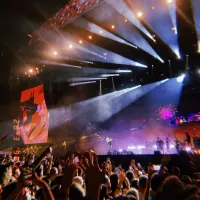
Lollapalooza is an annual four-day music festival held in Grant...
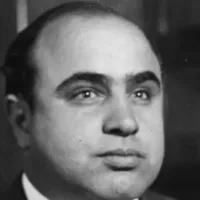
Alphonse Scarface Capone was a notorious American gangster and businessman...
Lyft Inc is a US-based transportation company providing a range...
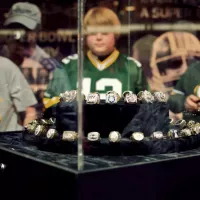
The Super Bowl is the annual championship game of the...
The National Broadcasting Company NBC is a major American commercial...
Trending
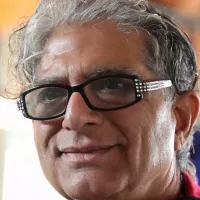
50 minutes ago Deepak Chopra's Ties to Jeffrey Epstein: Messages Reveal Close Relationship and Travel Invitations.
51 minutes ago Alamance preschool reopens post-storm; Noodle Ju'B offers ramen in Winston-Salem.
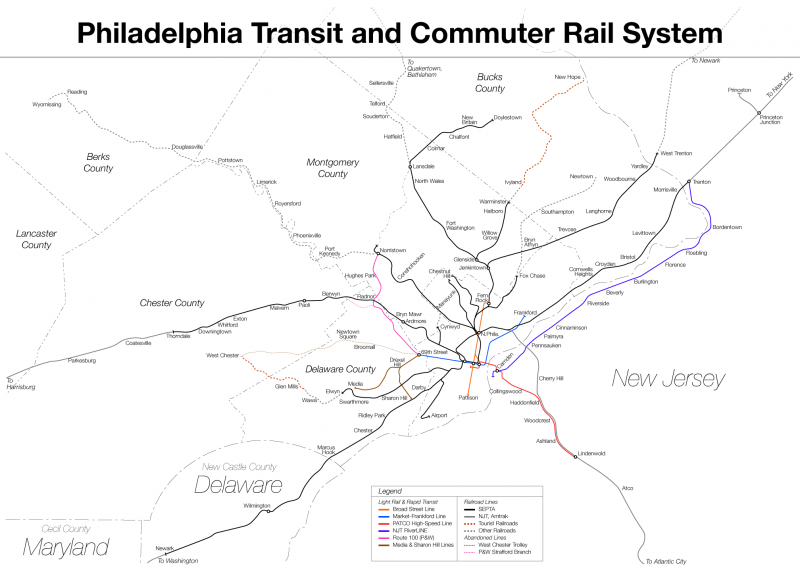
2 hours ago SEPTA Adjusts Service in Philadelphia Amidst Intense Blizzard and Heavy Snowfall.
2 hours ago Hawaiian Airlines to reduce widebody planes, update Airbus A330 cabins.

2 hours ago Michael Conforto Signs with Chicago Cubs Amidst Dodgers Free Agent Rumors.

4 hours ago Shakira Announces Free Concert in Mexico City's Zócalo for Her Fans
Popular

Jesse Jackson is an American civil rights activist politician and...

Barack Obama the th U S President - was the...

Bernie Sanders is a prominent American politician currently serving as...

Michael Joseph Jackson the King of Pop was a highly...
The Winter Olympic Games a major international multi-sport event held...

XXXTentacion born Jahseh Dwayne Ricardo Onfroy was a controversial yet...
